| SHADOWS ON THE WALL | REVIEWS | NEWS | FESTIVAL | AWARDS | Q&A | ABOUT | TALKBACK | |||||
 Shadows off the beaten path Shadows off the beaten pathIndies, foreign, docs and shorts...
On this page:
A BUNCH OF AMATEURS |
HIDDEN LETTERS |
LYNCH/OZ
| |||||
| See also: SHADOWS FILM FESTIVAL | Last update 6.Nov.22 | |||||
|
A Bunch of Amateurs Review by Rich Cline | 
| |||||
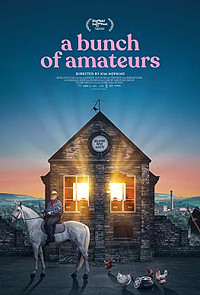 dir-scr Kim Hopkins prd Kim Hopkins, Margareta Szabo with Colin Egglestone, Harry Nicholls, Joe Ogden, Philip Wainman, Marie McCahery, Jeanette Wilson, Edmund Davies, Keith Wilcock, Ian Egglestone, Andrew Cockerill, David Marshall, Judith Simpson release UK 11.Nov.22 22/UK BFI 1h35 Now streaming...
| 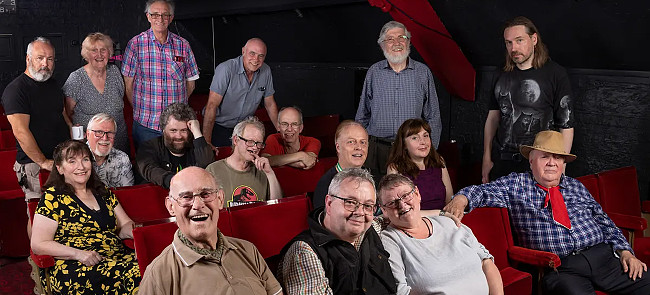 Documentaries are rarely this warm and engaging, or populated by so many fabulously colourful characters. Filmmaker Kim Hopkins turns her cameras on a 90-year-old club in West Yorkshire whose members love the movies so much that they're making their own films. Hopkins' gently meandering fly-on-the-wall approach simply allows us to follow these endearing eccentrics for a few years as they face various challenges while watching and making movies. Founded in 1932, Bradford Movie Makers is one of the oldest amateur filmmaking clubs in the world. The prolific members have made countless movies, while also documenting their glamorous annual awards ceremonies. But now their membership is ageing and their clubhouse is crumbling. Even as making movies becomes more accessible, finding interested people is proving to be difficult. New president Marie launches a fundraising community event to find new members, just as the pandemic hits. The question is whether they can survive lockdown. Or maybe this offers them an opportunity to reinvent themselves. Focussing mainly on five club members, the documentary features everyday scenes as these hilariously offbeat people chat about films, discuss their strained finances, make endless cups of tea and launch enthusiastically into various film projects. Harry has decided to remake the opening scene of Oklahoma, starring himself, although he can't ride a horse. A stand-in and Joe's clever digital trickery make up for that. Meanwhile, cameraman Phil continues to make pastiche horror movies starring the members as ghosts, zombies and victims. All of this is revealed in such a matter-of-fact way that it seems unthinkable that this club could ever cease to operate. Their busy clubhouse is essentially a kitchen and a screening room, and it needs a lot of work that they can't afford to carry out. Until that happens, it will be difficult to attract potential members. But each of these people has a wonderfully dry Northern sense of humour, taking things as they come while remaining loyal to each other. Fans of bickering melodrama might be disappointed that everyone on-screen gets on so well. Two members lose their spouses over the course of the production, and one has a fall that puts him out of commission for several weeks, so everyone steps up to support each other, keeping things ticking right along. This low-key storytelling may make the film feel a bit thin, lacking a major thematic kick, but it's a remarkably astute look at a vital group of cineastes and the moviegoing world that's shifting around them. And the final twist is exhilarating.
| | |||
|
Hidden Letters Review by Rich Cline | 
| |||||
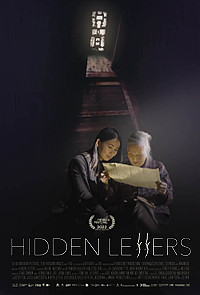 dir Violet Du Feng scr Violet Du Feng, John Farbrother prd Violet Du Feng, Mette Cheng Munthe-Kaas, Jean Tsien, Su Kim with Hu Xin, Wu Simu, He Yanxin, Tang Tian release US Jun.22 tff, UK Oct.22 lff 22/China 1h27  Now streaming... |
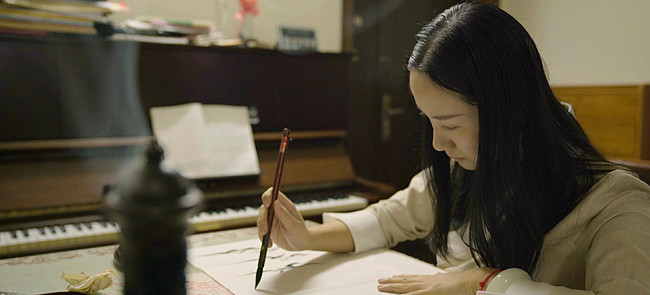 Beautifully shot and edited, this fascinating documentary finds a sharply knowing perspective on a little-known way women learned to express themselves throughout China's history. Because she keeps things specific and personal, director Violet Du Feng finds enormously powerful echoes in the wider world. It's a riveting, moving film, assembled with a remarkable fluidity to make its important points almost subliminally. And the observations are unusually complex and nuanced. Forbidden to read and write, thousands of generations of Chinese women have been lost to history. Feet were bound and they were confined to their rooms, so they created a script men couldn't understand, writing songs and poems for each other. The Nushu alphabet has been largely preserved in embroidery passed down through generations. The film follows three experts who protect and teach Nushu, which Xin describes as a language about mystery. And Yanxin is one of the last Nushu masters, noting that her version of the language is already less intense than her mother's. Personal scenes with Xin, Yanxin and Simu provide earthy humour, allowing seemingly random conversations to swirl around the issue at hand. Simu's fiance laughs about the task she set for him to translate a passage of Nushu, but he managed it in just a day. When Xin and Yanxin discuss Nushu, they note that it's a language of sisterhood, so the ancient writings rarely refer to husbands who treated their wives as slaves. And they are now preserving it with calligraphy, music, ceramics and art. Expanding to discuss the nature of gender in China, where women are still often seen as needing a male to help them, the film is full of gorgeous footage of families going about their daily routines. This includes these three women teaching the secrets of Nushu in sessions at a "princess camp" for young girls. Through these kinds of courses, they are gently revealing how men continue to control women. Shockingly, even the man who formerly managed the Nushu museum says the most important quality for women to have is obedience. It's jolting to see scenes in which men still try to control each situation. This extends to how they have attempted to commercialise Nushu, pushing it out of context. By contrast, Xin speaks of how the language helped her cope with her violently abusive ex-husband. Simu says that Nushu is like a lighthouse helping her see a way forward. This is an inspiring and ultimately hopeful film, noting the progress and also that there's much work still to do.
| ||||
|
Lynch/Oz Review by Rich Cline |  MUST
MUST  SEE SEE
| |||||
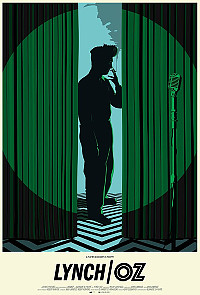 dir-scr Alexandre O Philippe prd Kerry Deignan Roy with John Waters, Karyn Kusama, David Lowery, Amy Nicholson, Rodney Ascher, Justin Benson, Aaron Moorhead release US Jun.22 tff, UK Oct.22 lff 22/US 1h48  Now streaming... |
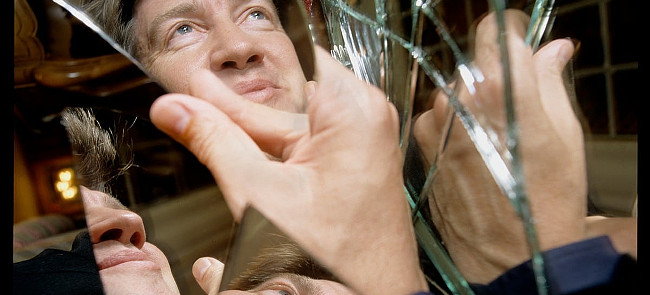 Taking a journey through American cinematic history, this entertaining documentary explores the resilience and timelessness of The Wizard of Oz, and how its story and iconography have had such a massive impact since its release in 1939. Cleverly weaving in hundreds of clips, filmmaker Alexandre O Philippe finds fascinating parallels everywhere, and especially in the films of David Lynch. Set out in idiosyncratic chapters, it's essential viewing for movie fans. A film that has never aged, The Wizard of Oz is heavily echoed in almost all of Lynch's work, from deliberately obvious references to more thematic ripples. And Lynch's life has parallels too, travelling from rural Montana to Hollywood, where he finds his power. The doc plays out in six segments presented by artists and filmmakers who explore connections between Lynch and Oz, dropping in a number of wonderful personal touches along the way. Lynch's Wild at Heart (1990) has the most direct references, while his masterpiece Mulholland Drive (2001) might be even more connected. Philippe creates fabulous juxtapositions throughout this documentary. In her chapter, Nicholson points out how The Wizard of Oz shares story beats with It's a Wonderful Life (1946); and both films flopped when they initially opened, but are now classics with ongoing impact. Indeed, Oz's impact on virtually every genre of moviemaking is impossible to ignore. It's full of moments of horror, comedy, love, despair and yearning that tap deeply into the nature of humanity. Amid his fabulous observations, Waters talks about Oz like a drug that gets kids hooked on movies for life. It certainly echoes through all of his own films, and he adores the reality Lynch is living in. Ascher discusses how Lynch's films so often follow innocent people who leave their everyday lives and travel somewhere frightening. Kusama looks at how Lynch echoes Oz's extended dream sequence story structure, and the fantasies that emerge. And of course Judy Garland's own life story adds another layer of meaning. David Lynch notoriously hates explaining his work, preferring to let audiences find whatever they will as they follow him down each rabbit hole. Never take things at surface value; there are dangers lurking in this beautiful place. Nothing is what it is. This is a bracing exploration of how certain movies burn themselves into our DNA so indelibly that they can't help but find themselves woven into the fabric of cinema. And Lynch's films and TV series locate Oz within our subconscious.
| ||||

See also: SHADOWS FILM FESTIVAL © 2022 by Rich Cline, Shadows
on the Wall
HOME | REVIEWS | NEWS | FESTIVAL | AWARDS
| Q&A | ABOUT | TALKBACK | | ||||

